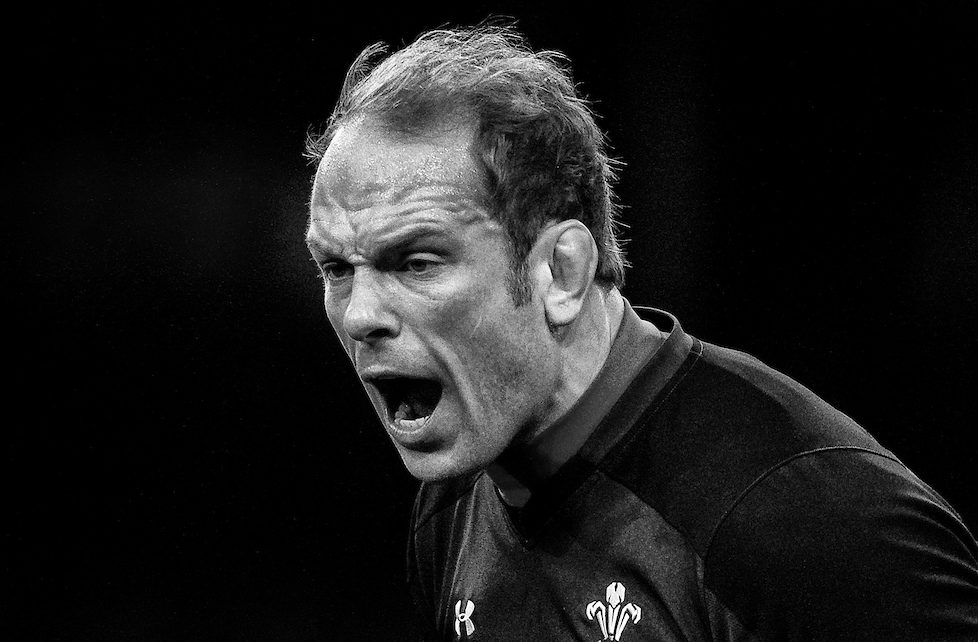The four Welsh regions should all be given equal slices of the cake, argues Robin Davey – regardless of history, success on the field, or anything else that has gone before. The only exception to this, he says, is when it comes to keeping the Wales captain, Alun Wyn Jones, in Wales.
Money is at the root of all the murky goings on as the countdown to the new rugby season gets under way.
It’s about cold, hard, coin . . . whether it involves funding the salary of Alun Wyn Jones to try to keep him in Wales or the thorny issue of regional payments.
The inspirational Wales captain has still to sign a new contract with the Ospreys, though his contract runs out after the World Cup this autumn.
It seems the salary of such a highly valued and vital player to the Welsh cause will be around the £450,000 mark.
The question is who should fund it – the Ospreys or the Welsh Rugby Union, in part, at least, now that joint contracts no longer exist?
The problem with the Ospreys paying all of it is that Jones is unlikely to play more than around 10 games for them next season because of World Cup commitments followed by the Six Nations. Then, there’s the need to nurse him through the campaign, given his age at 33 and remaining value to the Wales cause.
The answer is that the Ospreys should not be expected to pay in full. There has to be a WRU contribution of some sort, given the importance of the player to their success.
Look at the way he led Wales to the Grand Slam last season. He should be made a special case.

He is such a figurehead that even if the funding has been handed over to the Ospreys to make directly to players, there needs to be intervention.
The Ospreys have other financial pressures, so their claim will be that they cannot afford to make huge payments to a player when he will only play a handful of games.
The WRU have to make him an exception – and provide direct financial assistance to ensure the Ospreys retain him for the region and therefore keep him in Wales.
Bristol Bears are believed to be interested in signing Jones and if he became available no doubt other English Premiership clubs, plus a few in France would be very keen.
No-one could blame Jones for cashing in at this stage of his career by signing a lucrative contract to play elsewhere.
But he wouldn’t receive the same consideration in either England or France where the clubs expect rather more for their investment.
Burnout and possible injury would be the almost inevitable result and his Wales career would be far more likely to come to an abrupt end.
Even more vital, then, to keep him in Wales and for the WRU to treat such a valuable player differently by part-funding some of Jones’ salary.
On the wider financial front, Dragons chairman David Buttress has won a concession from the WRU – an extra £300,000 in funding.
It happened because the governing body admit in this case there are special reasons – although the Professional Rugby Board, which controls the regions, have also agreed.
Buttress argued that a thin Dragons squad would be in real danger without forwards of the calibre of Cory Hill, Ross Moriarty, Aaron Wainwright, Elliot Dee and possibly Leon Brown for long periods next season.
It would mean throwing in relative youngsters against vastly more experienced players from other teams which would do no-one any good, least of all the players involved.

But this financial assistance has illuminated the bigger picture of regional funding in general.
Buttress is furious that there remains such a wide gap in budgets and believes it’s about time that was ended – a plea the rival regions will doubtless disagree with.
The share-out is based on historical indicators, like the number of players a region supplies to Wales and their team performances.
It results in the PRB distribution being £3.4m to the Dragons, which includes that extra £300,000; £4.9m for Cardiff Blues; £5.3m for the Ospreys and £6m for the Scarlets.
In addition to the £20m direct WRU funding, there is a further £11.7m TV and competition money which the regions generate themselves, plus extra from sponsorship, commercial activities, corporate hospitality boxes and benefactors.
It all makes up the total revenue per year for the business, and helps to meet outgoings such as operational costs, coaching and admin staff.
It means playing budgets for next season provide the Dragons with £4.8m, Cardiff Blues £5.9m, the Ospreys £6.6m and the Scarlets £7.7m.
So, it is far from being a level playing field and if this disparity continues the Dragons, for example, will find it increasingly difficult to catch up.
Buttress is committed to finding extra investment so that he can take the region back into private ownership, something he hopes to achieve by the end of the year.
That, in turn, will help fund the development of the top end of Rodney Parade with a hotel and restaurants in the pipeline, profits from which would be ploughed back into the Dragons.
But that is very much long-term, and in the short-term they face major problems just trying to compete. Buttress remains angry about the situation and is adamant there has to be a fairer distribution of money.
The slate should surely be wiped clean with the regions receiving an equal share of cash from the WRU.
The rest of the revenue raised would then be up to them.





